
Alphabetical Menu
Chronological Menu
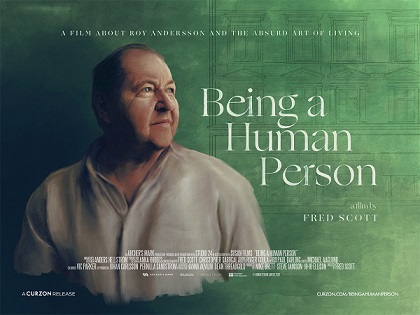
Being a Human Person, directed by Fred Scott, is both a documentary about Swedish filmmaker Roy Andersson and "making-of" behind-the-scenes of his latest film, About Endlessness. Candid interviews with Andersson show his intelligence, charisma and his vulnerability. He's brilliant, sensitive, funny, fragile and strong all at once. In other words, he's human. The fact that he's unafraid to discuss his thoughts and feelings so openly in front of the camera and to talk about his struggles with alcoholism adds some emotional depth that avoids turning the doc into a hagiography. Some of the insights into how he shoots his scenes, all in one studio, are fascinating, i.e. when he creates an illusion by using a small cut-out to make a background look real and larger than size. It would help to be familiar with Andersson's work prior to watching this doc, but if you're not, it will only make you curious about it. If you're already familiar with his work, Being a Human Person will only make you appreciate it. Either way, you'll appreciate Andersson's humanity even more and perhaps even understand it a little better. The very appropriately-titled Being a Human Person opens at Film Forum along with a sidebar of some of his films.
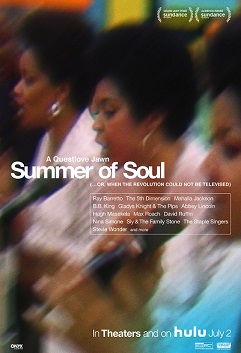
Summer of Soul (...Or, When the Revolution Could Not Be Televised), directed by Ahmir "Questlove" Thompson, is a toe-tapping concert film that shows long-lost footage from The Harlem Cultural Festival that took place in Mount Morris around the same time as Woodstock in 1969. Famous singers like B.B. King, Nina Simone, Stevie Wonder, Gladys Knight and many more performed at the festival which lasted six weeks with six concerts. All of the concerts were free to the public. Interspersed between the captivating concert footage are interviews and photographs which provide the doc with insights about Black history, like the fact that an NY Times journalist, Charlayne Hunter-Gault, convinced her editor to change the word "Negro" to "black" in her article and in future newspaper articles. Although the history lessons that Summer of Soul teaches the audience are valuable and illuminating, the music speaks for itself. Listening to it while watching the musicians perform it with such emotion and passion is a magical, profound and transcendent experience. It's also worth mentioning the film's editing which blends the footage and interviews in a way that entertains the audience while provoking them emotionally as well as intellectually. That's no easy feat to achieve. At a running time of just under 2 hours, Summer of Soul (...Or, When the Revolution Could Not Be Televised) is one of the best music documentaries since Standing in the Shadow of Motown. It opens in select theaters via Fox Searchlight and on Hulu. 
915: Hunting Hispanics, directed by Charlie Minn, is a gripping, unflinching and provocative documentary about the mass shooting at a Walmart in El Paso, Texas on August 3rd, 2019. Through interviews with survivors of the shooting as well as first responders, it becomes increasingly clear that too much time passed between the shooting and the time that EMTs started treating their victims. Minn should be commended for including interviews from multiple perspectives and for not being afraid to ask tough questions with no easy answers. This isn't an easy documentary to sit through because it doesn't shy away from showing the graphic footage and for showing the emotional toll that the shooting had on its survivors as they recall the traumatic events. Bravo to Minn for not sugar-coating the events and for taking an investigative approach that traces the victims' steps as well as the shooter's steps. The shooter and his background isn't so much the focus here, but it's definitely alarming to learn about his manifesto which stated clearly his intentions to kill Hispanics. Most importantly, though, 915: Hunting Hispanics puts a human face on the victims and survivors of the shooting. Anyone who doesn't shed a tear while watching them tell their account and share their feelings openly must be made out of stone. The survivors are very brave for doing that in front of the camera. We'll never be able to learn from history unless we look back and examine it. The past can't be changed, but the way you look at the past can be changed. Hopefully, this powerful and searing doc will serve as a stepping stone toward change and progress. At a running time of 2 hours and 4 minutes, 915:Hunting Hispanics opens at Cinema Village via Gravitas Ventures. The Boss Baby: Family Business 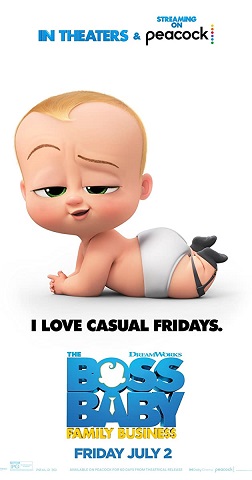 Tina (voice of Amy Sedaris), the Baby Boss of BabyCorp, suspects that the headmaster of a school, Dr. Erwin Armstrong (voice of Jeff Goldblum), might be up to no good. She gives her dad, Tim (voice of James Marsden) and uncle, Ted (voice of Alec Baldwin), a magic potion that turns them into babies for 48 hours so that they can infiltrate the school which her younger sister, Tabitha (voice of Ariana Greenblatt) also attends. The Boss Baby: Family Business has a zany plot that sounds like a kid-friendly Charlie Kaufman movie on crack. Adults might be entertained even more if they can look past some of the silly slapstick humor because the screenplay by Michael McCullers has some witty, tongue-in-cheek humor and easter eggs for adults every now and then. Most importantly, though, the film doesn't take itself too seriously and isn't ashamed of how off-the-wall it is. There are a few surprisingly heartfelt scenes that add some poignancy and tenderness without being clunky or distracting. Especially funny is a long sequence where Tim, transformed into a baby, zips right past his wife, Carol (voice of Eva Longoria), unbeknownst to her, as she drives, and he crashes into many places including a movie theater showing Spirit: Stallion of the Cimarron while he rides a pony. It encapsulated precisely how the film combines action, adventure, comedy and drama with zaniness so effectively. To be fair, though, there are so many jokes thrown at the screen that it becomes a bit exhausting and overwhelming at times. Not all of them stick the landing, but most of them do. Little kids will enjoy the physical gags while some of the more adult jokes will go over their heads. The main problem The Baby Boss: Family Business is that it's too fast-paced at times which can be very nauseating at times. It takes a while to get used to its frenetic energy which seems reminiscent of the kind of energy you'd expect from a screwball comedy from the Golden Age like Bringing Up Baby or most of Charlie Chaplin's films. The animation looks bright and colorful which should please children. Jeff Goldblum is very well-cast as the madcap Dr. Erwin Armstrong and has a lot of fun with his role. There's a twist involving his character which won't be spoiled here, but it's worth mentioning that he's a much more interesting villain than most villains, even the bland villains from live action films for adults like Black Widow. Lisa Kudrow also voices one of the supporting characters in an amusing dinner scene. At a running time of 1 hour and 47 minutes, The Boss Baby: Family Business is a funny, warm-hearted and delightfully zany comedy. 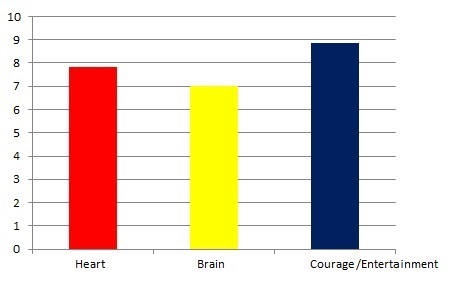 Cousins 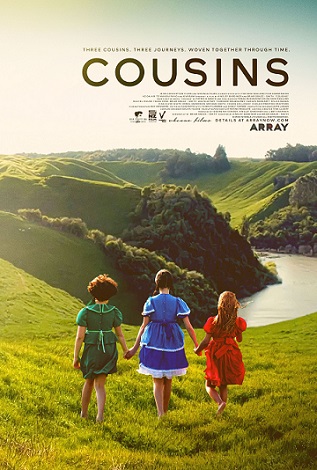 Three Maori cousins, Mata (Tanea Heke), Makareta (Briar Grace Smith), and Missy (Rachel House), reunine later in life after getting separated from each other during their childhood. When they might end up losing the land that they grew up in, Makareta uses her expertise in law to fight the legal battles while Missy stays behind to protect the land. Makareta searches for Mata whom she finds homeless, wandering the city streets. Based on the novel by Patricia Grace, Cousins spans decades within the lives of Mata, Makareta and Missy. Writer/co-director Briar Grace Smith opts for a non-linear approach to telling the story of how the three cousins went their separate ways in their childhood and led very different lives apart. Flashbacks to their childhood days and teenage years enhance both the story while enriching the audience's understanding of the characters' emotional journey. Mata suffers the most and, without spoiling what her backstory is precisely, it provides the narrative with shades of Charles Dickens which makes for some very emotionally devastating scenes. Fortunately, the filmmakers don't dwell too much on those darker elements; they're handled gently without hitting you over the head. There's a lot going on in the film as it jumps back and forth from the perspectives of Mata, Makareta and Missy throughout different points in their lives, so the way that all of those strands are woven into a compelling, poignant drama with some suspense is a testament to the strengths of the screenplay. Cousins could've easily felt overstuffed and uncooked with a less sensitive screenplay. Instead, it feels epic in scope while remaining grounded in realism because the filmmakers treat the characters like human beings. The same can be said for the way that they treat the audience because they trust their intelligence, imagination and patience. The raw, natural performances by Tanea Heke, Briar Grace Smith, Rachel House and the actresses who play the younger versions of each cousin also help to ground the film in realism and allow it to brim with humanism, a truly special effect. The bond between Mata, Makareta and Missy can be palpably felt. This isn't just a story about three women, although, admittedly, it's both rare and refreshing to see relationships between women be depicted so effectively on screen. Above all, they're compassionate human beings who display empathy and unconditional love for one another and for their sacred land, too. Their perseverance, courage and decency makes them strong and empowering role models as human beings. Even within darkness, it's still possible to turn on a small light. Mata, Makareta and Missy are very lucky to have each other because they become one another's light within the darkness of life's tragedies. While Cousins does show tragedy, it also shows hope. Moreover, the cinematography captures the majestic beauty of the landscape with breathtaking scenery. At a running time of 1 hour and 38 minutes, Cousins is a genuinely heartfelt, captivating and sweeping epic. 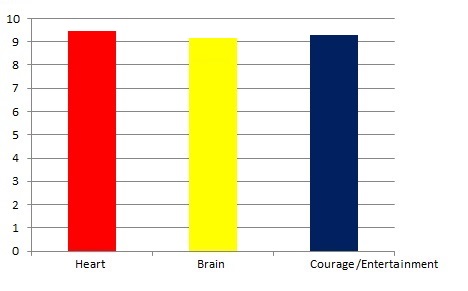 A Dim Valley 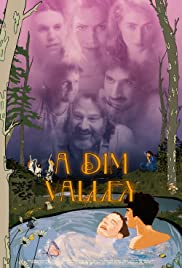 Graduate assistants Albert (Whitmer Thomas) and Ian (Zach Weintraub) stay out in the woods of Kentucky with their biology professor, Clarence (Robert Longstreet), for field research. One night, Albert and Ian bump into three mysterious women, Iris (Rosalie Lowe) Rose (Rachel McKeon) and Reed (Feathers Wise), and invite them into their cabin. Usually, films that take place in a "cabin in the woods" involve a serial killer, monsters, Bigfoot, zombies or something scary along those lines. A Dim Valley subverts those preconceived notions and instead takes the audience on an elliptical experience that's enigmatic like Antonioni's L'Avventura, but not quite as brilliant or mesmerizing. Writer/director Brandon Colvin doesn't spoonfeed the audience and allows for plenty of room for interpretation, even when it comes to the backstory and true identities of Iris, Rose and Reed. Is there something supernatural going on? Are they metaphors for something perhaps? Or maybe they're Albert, Ian and Clarence's shared hallucination? The way that they're introduced to the audience in the woods all-of-a-sudden suggests that they might not be real at all. What do they want from the three men? The answer to that question rises to the surface gradually, but even when it finally does, it doesn't really amount to anything that adds depth. With the exception of Clarence who's the most compelling character, most of them are underdeveloped, and the screenplay doesn't provide much of a window into their heart, mind and soul, so it's hard to become invested in them as human beings. Albert and Ian are stoners and not very bright, but those qualities alone don't make them interesting characters. That emotional distance and lack of character depth makes A Dim Valley feel cold and dull. When it comes to cinematography and editing, A Dim Valley excels the most because both add richness and style to the film. There's a dreamlike quality to some scenes and, along with the leisurely pace, it provides a somewhat eerie, foreboding atmosphere. Colvin should be commended for trusting the audience's patience and he has a European sensibility when it comes to its slow pace which is refreshing. However, although patience is often rewarding, that's the case with this film that feels undercooked and meandering. Maybe it would be best to experience A Dim Valley while high or drunk. 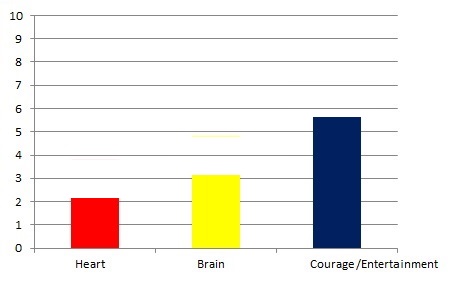 First Date 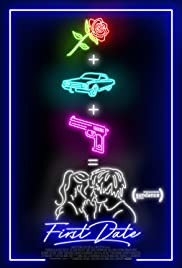
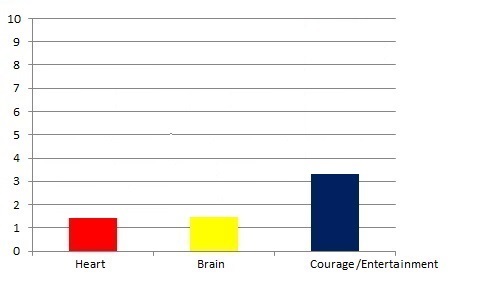 The Forever Purge 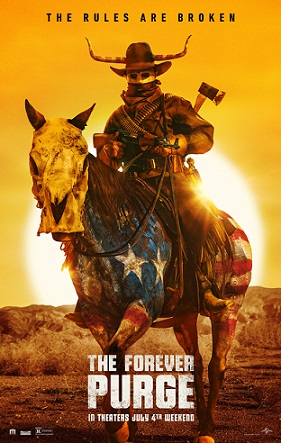
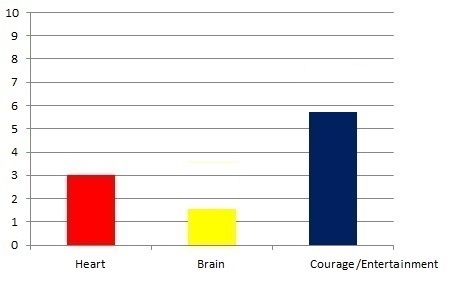 Long Story Short 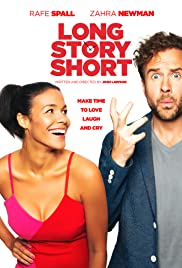
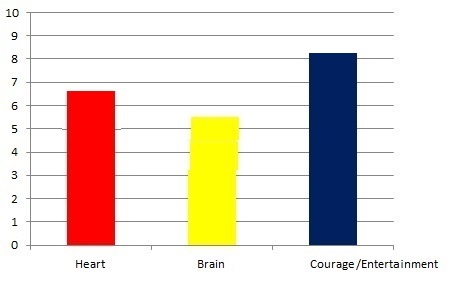 |